MercoPress. South Atlantic News Agency
Stories for June 27th 2016
-
Monday, June 27th 2016 - 10:06 UTC
UK ready to face the future from a position of strength, says Chancellor Osborne
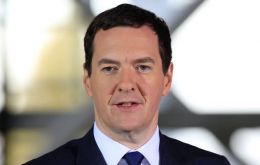
Chancellor of the Exchequer George Osborne has said the UK is ready to face the future “from a position of strength” and indicated there will be no immediate emergency Budget. However he admitted there would still need to be an “adjustment” in the UK economy, and it was “perfectly sensible to wait for a new prime minister” before taking any such action.
-
Monday, June 27th 2016 - 08:07 UTC
Berlin and Paris in “full agreement”; Merkel aide says politicians in London should take time to reconsider Brexit
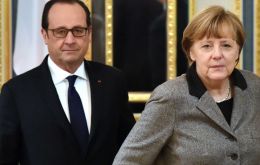
German Chancellor Angela Merkel and French President Francois Hollande said on Sunday they are in “full agreement” on how to handle the fallout from the UK's decision to leave the European Union. Hollande warned that “separated, we run the risk of divisions, dissension and quarrels”.
-
Monday, June 27th 2016 - 08:01 UTC
Temer will be absent from Mercosur summit; displeasure with Venezuela

Brazilian interim president Michel Temer will be absent from the next Mercosur summit scheduled to take place in Montevideo, and this decision is considered a strong message to the Venezuelan government of president Nicolas Maduro that will be taking the group's chair for the next six months.
-
Monday, June 27th 2016 - 07:15 UTC
Brazil's recession greater risk than Brexit for Argentina: could chip 1.5 percentage points from GDP
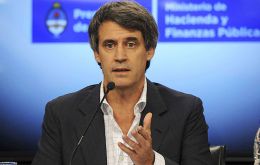
Argentina’s annual rate of inflation was likely to have reached an annualized 42% through May, but should begin to slow in June with a return to growth also on the horizon, Finance Minister Alfonso Prat-Gay said in an address to investors in New York. The minister also said that for Argentina, Brazil's recession had a greater impact than Brexit.
-
Monday, June 27th 2016 - 07:04 UTC
Anti-Doping agency suspends testing laboratory in Rio for coming Olympics

The World Anti-Doping Agency (WADA) has suspended the credentials of a testing laboratory in Rio de Janeiro that didn’t conform with international standards, just over a month before the city hosts the Olympic Games.
-
Monday, June 27th 2016 - 06:53 UTC
Panama opens long-delayed US$ 4.5bn canal expansion: massive litigations looming
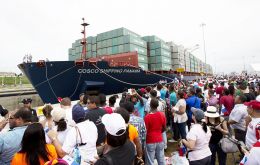
Panama opened the long-delayed US$5.4 billion expansion of its shipping canal amid cheering crowds on Sunday, despite looming economic uncertainty in the shipping industry and a heated battle over billions in cost overruns.
-
Monday, June 27th 2016 - 06:38 UTC
UK Labour party in disarray: fears or a party divide and great losses in the event of a snap election

United Kingdom Labour leader Jeremy Corbyn has said he will stand in any new leadership election following the resignations of a string of shadow cabinet colleagues. Shadow Commons leader Chris Bryant was the latest person to resign in protest at Corbyn's leadership over the EU referendum - and more are expected.
-
Monday, June 27th 2016 - 06:27 UTC
Rajoy wins Sunday elections, but Spain remains blocked; coalition talks begin Monday
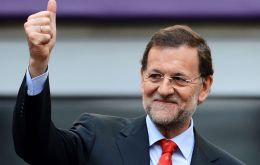
The conservative Popular Party of Mariano Rajoy, Spain's caretaker prime minister, won the most votes in Spain’s repeat national elections on Sunday, while the Socialists held off a challenge from the Podemos Party to remain the largest left-wing formation. The fragmented result, however, did not settle who will form the country’s next government.
